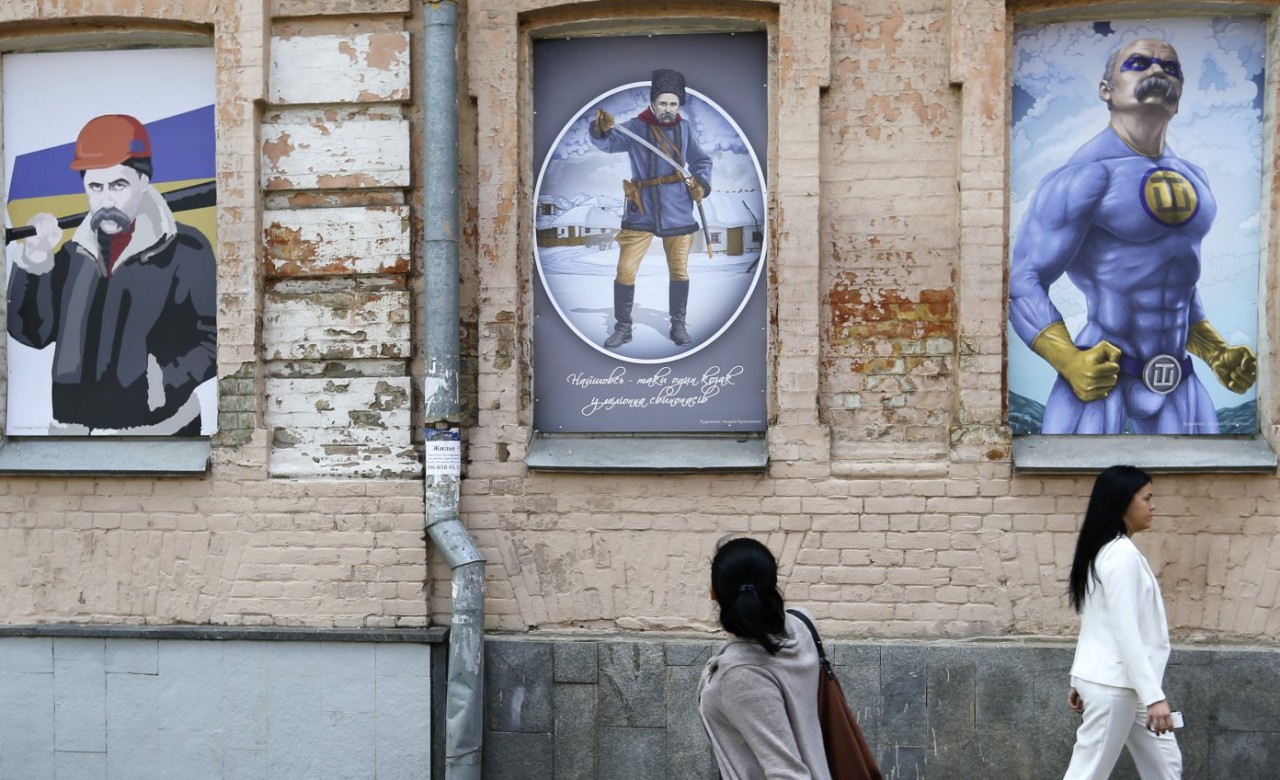Ukrainian Studies in Europe: New Possibilities
2.
Availing ourselves of the intergenerational, intertextual, interlinguistic vibrancy of Ukraine’s culture is to use a master key. It opens all manner of doors, particularly with the public. Without question, a buzzword in our field should be public outreach, particularly in the age of Facebook, Twitter and iTunesU. As scholars we are understandably conditioned to view anything beyond our teaching and research as a career-killing waste of time. But the future of Ukrainian Studies depends on our ability to generate more career, publication and funding opportunities for our students and to grow a more diverse audience over the long term. Here in Great Britain, our colleagues in Polish Studies and Russian Studies can build critical mass by collaborating with such institutions as the Polish Cultural Institute and Pushkin House, which engender public interest in Poland and Russia with concerts, exhibitions, film festivals, translation initiatives and the like. These colleagues can also expect that a visitor to any High Street bookstore will discover, for example, literary Poland and literary Russia among the texts on its shelves.1 We have no such luxury, nor can we afford to wait for one. Koly – iak ne zaraz, i khto – iak ne my?
All of us in Ukrainian Studies therefore have a stake in fostering the study of culture and showcasing cultural products for public consumption. Doing so pays intellectual and practical dividends. We unveil new research horizons, reach new audiences, and recruit new colleagues by developing the profession of Ukrainian-to-English literary translation and by regularly organizing film screenings, concerts, or art exhibitions in collaboration with Ukrainian partners. At Cambridge, for instance, one of our annual public offerings is an evening of musical performances and literary readings in tribute to and in support of Vsesvit, the oldest active literary journal in Ukraine. Founded in 1925 by Oleksandr Dovzhenko, Vasyl’ Blakytnyi, and Mykola Khvyl’ovyi, the journal has translated over 4,000 works from 98 literatures of the world into the Ukrainian language.
Over the course of the Vsesvit evening, we read selected texts in their original languages – Catalan, Yiddish, Hebrew, Armenian, Georgian, Russian, Polish, Italian – and then in English translation and in the Ukrainian translation published in Vsesvit. Our audiences bring to the event a variety of linguistic competencies and disciplinary backgrounds. Many are there to discover the Ukrainian language for the first time. Others are undergraduate and graduate students in our Ukrainian Studies programme who approach the selected texts as opportunities for further comparative study: Adam Zagajewski’s reminiscences of L’viv/Lwów, Hayim Nahman Bialik’s elegies for the Jewish community in Volyn, Aharon Appelfeld’s representations of the Ukrainian peasantry in Czernowitz/Chernivtsi, Mykola Bazhan’s interpretations of classical and Romantic Georgian literature. In other words, events like the Vsesvit evening present Ukraine both as a cultural centre and as a cultural interstice, a site of artistic creation and translation. They elicit attention from diverse publics and from a particular constituency whose significance, in my view, is often underestimated in Ukrainian Studies: the undergraduate community.
In nearly six years at Cambridge, we have had well over one hundred undergraduates enrolled in our various course offerings. Some come to us with no prior knowledge of a Slavic language, meaning that Ukraine is the first stop on their intellectual journey through Eastern Europe. A growing number of our undergraduates go on to pursue topics in Ukrainian Studies at the graduate level, by which time they have already critically assessed the conventional wisdom about translatio imperii, ‘historical’ vs. ‘non-historical’ nations, and the like. As it stands, Ukrainian Studies in Europe is predominantly a graduate teaching enterprise. The field would be well served by more directed appeals to undergraduates and even to students in advanced secondary schools. In fact, national affiliates of the International Association of Ukrainian Studies may wish to consider including the post of ‘Schools Liaison Officer’ among the leadership and to formalize this outreach to younger communities.
3.
To this point I have simply suggested that the field of Ukrainian Studies in Europe embrace the cultural and engage the public and the undergraduate community with more purpose, ambition and direction. I would like to conclude with a self-evident but nonetheless important observation. London, Berlin, Vienna are only a short flight away from Kyiv and Kharkiv. This relative geographical proximity underscores our collective responsibility to work in active partnership with students and colleagues in Ukraine, to the extent possible. Here we seek to follow in the footsteps of our colleagues in the United States and in Canada. Programs and initiatives in Ukrainian Studies can only succeed and flourish if they cultivate deeper bilateral relationships with Ukrainian cultural and educational institutions and with the people of Ukraine – especially now, as the country bravely embarks on a new chapter in its history.
Rory Finnin is a University Senior Lecturer in Ukrainian Studies, Head of the Department of Slavonic Studies, Director of the Ukrainian Studies Programme, and the Chair of the Cambridge Committee for Russian and East European Studies at the University of Cambridge. He can be reached at ref35@cam.ac.uk.
- 1.A quick, simple visit to Blackwell’s Online is instructive: a search for in-stock books under the heading ‘Russian literature’ yields 131 results and under ‘Polish literature’, 16 results. An identical search for books under the heading ‘Ukrainian literature’ yields no results at all.
- 1.A quick, simple visit to Blackwell’s Online is instructive: a search for in-stock books under the heading ‘Russian literature’ yields 131 results and under ‘Polish literature’, 16 results. An identical search for books under the heading ‘Ukrainian literature’ yields no results at all.


Join the Discussion!